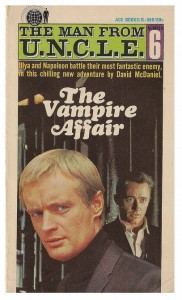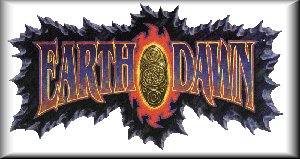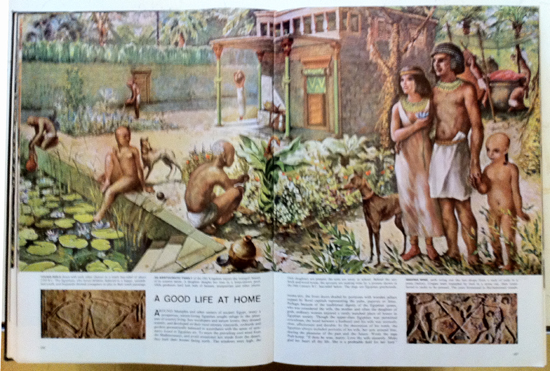 TODAY IS DAY ONE of “Speak Out with Your Geek Out.” Author and game designer Monica Valentinelli put out a call for a week of “joy, positivity and happiness” about the hobbies and other activities geeks love. It stuck a chord for thousands, me included.
TODAY IS DAY ONE of “Speak Out with Your Geek Out.” Author and game designer Monica Valentinelli put out a call for a week of “joy, positivity and happiness” about the hobbies and other activities geeks love. It stuck a chord for thousands, me included.
I plan to write several posts this week, but my first — the one you’re reading today — is about my efforts as a writer.
I have more to say than I expected. Some details will go into Part Two of the WoW Insider article coming up later this week. (Part One is the 15 Minutes of Fame interview.)
However, in the spirit of Speak Out with Your Geek Out, I’m going to talk about the uneven path my writing has taken with the intent to show that I believe, stumbling or not, it has been worth it. It continues to be worth it.
And don’t let anyone tell you otherwise.
THE GEEKY KID
No question, what I’m best known for today is my artwork. But if you could have talked to the middle-schooler-me and asked “When you’re older, you’ll be known for your creative work — what will that be?”, I would have surely answered “I’ll be a writer.”
Artwork? It was around. Both my folks painted and my mom did endless handicrafts. My dad did sculpture and mosaic. My brother did lapidary and metal sculpture. My big sister took the “Famous Artists Course” and used me mercilessly as a dress-up doll for her sewing projects.
It was cool stuff but artwork was just something my family did evenings and weekends. Moreover, I didn’t think I was any good — everyone else was better. The simple fact is, I was the youngest by at least seven years. Of course the others were more accomplished.
But writing… that was special.
TOO MUCH IMAGINATION
My picture books were full of untold tales, quite aside from the ones actually written there. In my imagination, the pictures from my favorite books begged for more stories.
What were those books? I learned to read from an early British edition of The Hobbit, complete with Tolkien’s own pictures. I repeatedly re-read a child’s version of The Illiad, and copied the stylized artwork. I tried desperately to learn to draw like the artist whose work filled a book about American Indians — little did I know I was looking at steelplate etchings. (And you wonder why I use a 6-ought pen nib even today!) The Indians in those pictures were alive to me.
A Time-Life Book like The Epic of Man could hold me enthralled better than Captain Kangaroo. I wanted to know the cave men, the Egyptians, the bare-breasted Minoans in those paintings. What were their names? What did they do when the book closed and no one was looking at them?
I told my dad I wanted to write a story about the scene pictured above, taken from that book (which I still own). He humored me — and schooled me about intellectual property rights even back then. With his help, I wrote to the Time-Life offices for permission. I got a very nice letter back actually giving me that permission, and asking to see the manuscript when it was finished.
I was ten years old.
Of course I never finished that story. What that experience taught me was that this sort of thing was possible.
BUT IN SCHOOL…
My folks were the sort to encourage and support all creative efforts.
In school, though? That was “showing off.” And if the teachers liked what I did, that was worse: “teacher’s pet.”
Even my friends — when I had any — were weirded out by the stories I wrote. I showed a schoolfriend a story I was terrifically excited about — 8th or 9th grade, maybe. After reading a little of it, she shoved the pages back in my face and told me I was a sick person. I have no idea what that story was — something about a shipwreck is all I remember — but I totally believed her. I never touched the story again, and tried to write “nicer” after that. (I bet this is a theme you’ll see a lot this week.)
 GOING INTO HIDING
GOING INTO HIDING
I began hiding my writing. I crossed over into serious geekery about this time, because I became a Man from U.N.C.L.E. fan.
Trust me when I say this did not make me popular in school.
I was reading all the novels, over and over and over. I did all kinds of UNCLE stuff for fun. I studied codes and ciphers. I drew. I made a linoleum block cut of the skeleton globe logo so I could print “stationery” for myself.
And I wrote. I couldn’t get enough of the TV show, so I made up my own stories.
I still have that notebook with my “novel,” all 114 pages of it, and an assortment of other UNCLE stories, half-started. The notebook is an inch and a half thick with pages both handwritten and typed on our old clunky Royal. And no, it was not slashfic because such things were unimagined and unimaginable that long ago. No one else ever saw what I wrote, not a soul. No one ever will.
But damn, how I loved writing it, getting into their heads, putting words in their mouths. What that experience taught me was that writing let me transfer the moving pictures in my head into words on paper, and I enjoyed it.
THE GROWN-UP
In college, I found my “tribe,” though we didn’t use that term. The science fiction geeks we were formed writers’ groups, where people told me I was pronouncing my main character’s name wrong(!), and that the word looked like I named him after socks. (How do you write something pronounced “arr-jell-us”? I picked Argylis.)
The gamers I met in that tribe all wrote a bit. It wasn’t necessarily Tunnels & Trolls, the game we played then, it was just fantasy. But even there, I was lambasted for starting a story by killing the main character right off the bat. The story was to be about his ghost, but it also never got written because of the ridicule and arguments about it.
Another story got a lot of work, many pages with a grand plot, good characters, and a rich world with an enchanted gypsy causing a lot of trouble for the protagonist. I was told I couldn’t use the term “gypsy” without meaning someone of the Roma people specifically. But this guy wasn’t. I was using “gypsy” as shorthand for “a traveling vagabond of dubious intent” and the “enchanted” part meant he was magically potent. Maybe he’d been Romany once, in a parallel world — I didn’t know. I didn’t care. But everyone else did.
I started a lot of stories. I finished very few of them. What that experience taught me was that I was always doing it wrong.
 YOU’RE NOT A WRITER IF YOU CAN BE DISSUADED
YOU’RE NOT A WRITER IF YOU CAN BE DISSUADED
That’s the common soundbite to shut up wannabe writers. The only writers who will ever succeed are those who can’t NOT write.
I would stop writing particular stories, but I never stopped writing. In my 20s, my creative juices began going into the art and game creation — fiction got the leftovers. I didn’t stop, but there wasn’t much there, either.
What was ironic is that, for all the walls I ran into over the years, I got a very mixed message. Everyone told me how well I wrote: great characters, exceptional dialog, powerful pacing and imagery. I was weak on plotting, having something for those so-interesting characters to do, but I could muddle through. And always, always, I loved my characters and what horrible things I was doing to make their lives miserable!
ROUGH ROAD AHEAD
My ex was one who believed powerfully in my early ability to write. He went from publishing his first short game article to becoming a New York Times bestselling author in the 22 years we were together, and he has dozens of books to his name today. He always encouraged me to write, and opened many doors.
But there was a problem. Here was my ex, a proven novelist and someone I cared for very much, who wanted to help me be a better writer. Every time I started a story, he had to tell me how to make it better. Every time I got a brainstorm, he would run off with it in a completely different direction. He got me entré to anthologies, and then outlined the story I should tell. He had to try to fix everything.
When I got feisty and fought for doing things my own way — and I did — he disapproved. If I would just write like him, I’d be a famous published author too. He never said any such thing, but every conversation about writing boiled down to just that. He knew what he was doing — provably. I didn’t — provably — so why wouldn’t I just get with the program?
 I got an invitation to write an Earthdawn novel back in the day. I worked my ass off to put together a great outline. I took input from my ex, who had quite a few books published with FASA by then, but I genuinely felt I’d made the story my own. I really wanted this chance to show what I could do.
I got an invitation to write an Earthdawn novel back in the day. I worked my ass off to put together a great outline. I took input from my ex, who had quite a few books published with FASA by then, but I genuinely felt I’d made the story my own. I really wanted this chance to show what I could do.
Sam Lewis rejected the outline. “If I wanted a novel he would have written, I would have asked him to do it. I wanted your story.”
What that experience taught me was that I wasn’t really cut out to be a writer.
GIVING UP
Eventually, I was sure I’d never write again. My ex and I became ex’s, and although I tried writing occasionally, what little I did refused to catch fire, on the page or in my imagination.
There was a lot of hell going on in my life then, from many directions. When I look at the art I did in those years, I see even it wasn’t very good. In retrospect, I’m not really surprised the writing suffered failure to launch.
PLAYING AROUND
In 2005, I started playing World of Warcraft. As I said when I started this post, I have more to say than really fits in one place, and I’ll share some details in Part Two of the “15 Minutes of Fame” article. (I’ll link it here once it is live. [Done!])
 The short version is, I started writing about my main character in WoW, Winterice of Stormwind. I wrote for myself, because I couldn’t not write. I used the settings but didn’t copy what the game had to give — what fun would that be? I thought about what it meant to be someone living in a world like that, and my stories went from there.
The short version is, I started writing about my main character in WoW, Winterice of Stormwind. I wrote for myself, because I couldn’t not write. I used the settings but didn’t copy what the game had to give — what fun would that be? I thought about what it meant to be someone living in a world like that, and my stories went from there.
Story followed story, from brief mood pieces and flashfic to a novella of 48,000 words. I learned more about the simple craft of writing than I learned in the previous three decades combined. Over the last five years, I have generated around 160,000 words of fiction about Winter and those around him.
What that experience taught me was that I was some kind of writer after all.
WRITING FANFIC
A hundred and sixty thousand words, and I was embarrassed about all of it.
Here we finally return to the Speak Out theme, folks. It was fanfic. It was flipping hamburgers in someone else’s universe, as someone who shall remain nameless once said. It was beneath me, surely. I’d written, and had published, original works that I was paid to write. Yes, they were often in someone else’s universe — Shadowrun, Tunnels & Trolls — but they were vetted by real editors and paid for with real money. That wasn’t fanfic, any more than a licensed Star Wars novel or a shared world anthology. Right? Right?
Writing about Winter was a painfully guilty pleasure. I had a few select friends I would share the stories with, and that was that. It was too unprofessional… too geeky… too juvenile… to write fanfic about a video game. Ewwwwww.
COMING OUT OF THE CLOSET
On July 7th of this year, a remarkable article appeared in Time magazine. Lev Grossman wrote “The Boy Who Lived Forever” about Harry Potter fandom and the general subject of fan fiction. He got it completely right, warts and all. But the article represents a tipping point in my mind about fanfic: it really is all about loving the stories. And it’s about not being able to NOT write.
 I’ve long been an advocate encouraging teens (and adults) to practice writing, critiquing, editing through fan fiction. Fanfic has been (gingerly, with caveats) embraced in libraries and schools to encourage literacy skills and creative thinking, and as a sidebar to teach what my father taught me about intellectual property rights.
I’ve long been an advocate encouraging teens (and adults) to practice writing, critiquing, editing through fan fiction. Fanfic has been (gingerly, with caveats) embraced in libraries and schools to encourage literacy skills and creative thinking, and as a sidebar to teach what my father taught me about intellectual property rights.
For me, writing WoW fanfic has also been a kind of physical therapy recovery program. My writing was crippled, broken. By not taking the WoWfic too seriously at the start, I was able to learn to walk again, and then run and dance. Turning out stories built my confidence, taught me specific skills I didn’t even know I lacked.
In the heyday of the pulp magazines, a person could get published while still learning the craft, because magazines needed anything half-competent to fill the pages. Where does one learn to write, now? Endless trunk novels, certainly. Simply by writing and writing, which is after all the fundamental skill.
But also in fan fiction. Is it training wheels? I still think so. I don’t have to make up races and build maps of my worlds — that is already supplied. But honestly, that’s the easy part (at least for me). Plotting action, ways to show character development, how to keep from just having talking heads, pacing a scene, and how to write a “button” to end a chapter… those can be learned by practicing them in fan fiction.
Make no mistake. Authors you know and respect have written unvarnished, unpaid-for, unsolicited fan fiction at some point in their careers. Many hide it; a few celebrate it. (Steven Brust is one of the latter, with a Firefly novel written long after he’d made his chops as an established writer.)
Is it better to be paid (and payable) for what you write, creating intellectual property that you alone have full ownership of? I say yes. But I no longer believe all fan fiction is bad fiction, nor time ill-spent, any more than all formally-published work is high quality or even competent writing.
This is the geekery that I choose to celebrate today. In doing so, I hope others might decide that doing what they love can be celebrated likewise.
READ ME
On the right-hand navigation bar of this website, there is a new button: “Fiction.” Right now, there are two stories in there for you to read.
“Imp Possible Situations” is a sword-and-sorcery fantasy about Jakrista, once chatelaine of EliensTorm and “hero-born of the Enchanted Gypsy.” Sound familiar? Yes. She was my protagonist in the tales that were never completed because people bitched at me about using the word “gypsy.” I liked her too much to let her perish, and when it was time to write a story for the Tunnels & Trolls anthology Mage’s Blood and Old Bones, she became a world-walker, moving to some alternate universe where she could live again. She’s got a smart mouth, a crappy attitude, and a great sidekick in Carrodag’s Sparrow, also known as the imp Inominadrieth.
 “Sleeping with the Horde” is the first WoW fiction I’ve ever released into the wild, although not for lack of trying. When I wrote it originally, it was over 17,000 words long. Those who read it said it made them cry — male and female alike, and even someone who never played the game. (This shocked the hell out of me. I knew it was a good story. I had no idea it had that much power.)
“Sleeping with the Horde” is the first WoW fiction I’ve ever released into the wild, although not for lack of trying. When I wrote it originally, it was over 17,000 words long. Those who read it said it made them cry — male and female alike, and even someone who never played the game. (This shocked the hell out of me. I knew it was a good story. I had no idea it had that much power.)
With feedback like that, I submitted it to the Blizzard fiction contest — a move that required me to edit it down to 7500 words or less. It didn’t win but I learned a lot, about the relative value of scenes and how to retain the story I wanted to tell in less than half the original number of words.
Still, the story felt strangled and stiff that short. The version here is “the Goldilocks version” … not too big nor too small but just right, and just under 10,000 words.
LOOKING FORWARD
I have a standalone novel I’ve been working on awhile. I want to take what I’ve learned in fanfic and tell stories of my own devising. Some of the characters are coming to life on the page, as they used to years ago.
When, whether, and how what I do gets published is a separate issue. I have learned enough to know I have a lot yet to learn. I allowed myself not to write, or to write very little, for too much of my life. One of the consequences is that I simply don’t have enough practice to have great expectations. Modest ones will do.
My final point to this very long post is that I hope someone finds encouragement when they’ve been discouraged about writing. Monica, the writer who started the Speak Out project, has noted that we will only write so many words in our lifetimes. I have lost years and years of practice, of stories, of characters who will never live, walk, and breathe in your imaginations.
I did it to myself. I made choices about how art (and a paycheck) counted for more than sleepless nights drooping over a keyboard. That having cold beds and cold shoulders from certain friends and lovers was not a price I was willing to pay.
I write for myself now, although I would be lying through my teeth to say I don’t care what you think about the stories I’ve posted. I hope you enjoy reading them; of course I do. As I think it appropriate, I might add more.
But one of the nice things, one of the things that makes me happiest, is that a story I wrote just a few months ago unlocks Winter as a character from the prison that is WoW. Just as Jakrista is a world-walker, now Winter is too. His personality I claim as my own creation, forged in the fires of Azeroth but grown larger. A magician with jet black hair in a contemporary urban fantasy? A handsome apostate in Thedas? Even another wizard to cause grief for Jakrista and the imp? These are all possibilities on my docket.
I just hope I live long enough to write them all. I’ve wasted too much time already.

Great Blog! I used to ‘write up’ stories from pen and paper roleplay sessions. Somehow, letting the game handle plot and setting allowed me more time and energy to fill in the details. Part of it was also documenting the event…and part of it was the fact that it was just strangely enjoyable – even if nobody read them but me! I also saw the Time article on fanfic and realised I wasn’t the only one! And recently I bought (yes Paid for) a novel by a first time writer that was inspired by roleplay game sessions. It’s fresh, does all sorts of strange and unpredicatble stuff and frankly I never know what is going to happen next. It pleasantly avoids so many of the ‘rules’ of novel writing that we have by now all internalised anyway. Anyway- just thought I’d share – and thanks again for writing your blog.
Thanks for sharing that, Liz. I always considered you to be a writer as well as an artist, and never knew how much influence He had on you. What is “Crusaders of Khazan” if not the greatest Tunnels and Trolls story ever told? I want to read your writing. Write on!
Lovely post, Liz. Now I need to find some time to read your writing as well.
I see a crucial difference between deliberately writing for an audience and writing just for yourself. If you’re addressing others, I feel you have to stop and explain things – what the history is, what the politics are, who the important players are and why they matter? With recurring characters at the start of every story you need a way to reintroduce them, whilst keeping them fresh for those who are your frequent readers.
I write very badly, but at least when I write for myself I can indulge with reminiscinces of that clockwork orange plot the biscuits attempted that one year to take out the royal family in Gracklenoble which was thwarted due to the incidence of a ‘swordstoad between charters’ (so to speak) in the area, or the quest to find the staff made for the tip of the greatest anvil chorus ever to pass out of the forges of the Dubzenheim, or that time a few casual references to something like a nurbulating fromisandial dropwort drove a warlord’s team of mathematicians to a frenzy…
I don’t have to stop and look back over my shoulder every ten minutes, wondering if the audience will be keeping up?
Anyway, as I said, I’m a very bad writer. Or something like that…
And fan fiction perhaps blurs the boundaries between the audience and the private a little. The act of writing for yourself in a shared world means even if you don’t stop and explain what’s going on every couple of sentences, other people who know at least the general gist of what’s going on with that world may be able to read what you’ve written and halfway understand it.
This is where I’m supposed to make some sort of cute, deeply insightful remark to wrap up with, to excuse the earlier blitherings….

Ummmm……